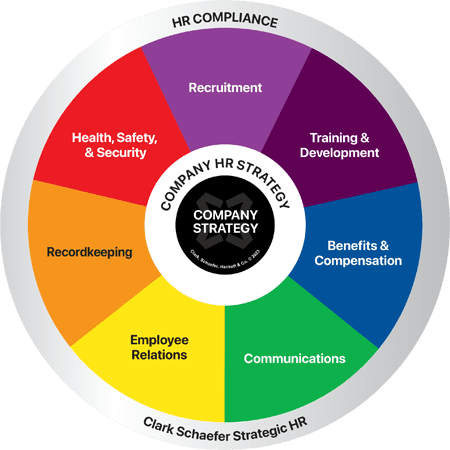Strategies to Help Your Recruiter Succeed
Last Updated on March 29, 2019 / Recruitment
Candidate Attraction Specialist.
Talent Acquisition Consultant.
Contingent Workforce Manager.
Principle Delivery Consultant.
Chief Talent Officer.
While these positions all have a variety of titles, their job function remains the same: they’re all recruiters trying to help their company attract top talent to their workplace! Recruiting is a complex and exciting job, and it may not be for everyone. It’s important for you to consider what it takes to be a successful Staffing Specialist, including some of the wins and challenges your recruiter might face.
First, let’s consider what makes a recruiter successful. The role of talent acquisition requires a unique mix of soft and technical skills, meaning this individual would benefit from a background of hands-on knowledge and strong networking experience. Here are some of the softer skills that your recruiter can rely on to develop in this area:
- They’re a People Person: Recruiter.com makes an excellent point in their blog post, Should You Become a Recruiter? 5 Signs You Have the Stuff. Because recruiters are making decisions that could make or break a person’s next career change, the whole process can be incredibly personal. You’ll want your recruiter to be able to build strong connections with your hiring managers and your candidates to be able to have tough conversations and find that right fit.
- They Have a Thick Skin: Like we said, recruiting is personal. Your recruiter won’t be able to please everyone, and they can’t give everyone a million dollars for their annual salary. However, your recruiter can be pleasant, understand that everyone is coming from a different walk of life, and do their best to meet both the hiring manager and your candidates’ needs. It’s a tightrope, but you can walk it!
- They’re Driven: recruiting requires the ability to be flexible. Sometimes the perfect candidate found another position, or that ideal fit wasn’t so ideal for the hiring manager. That’s okay! It just means your recruiter needs to head back to the drawing board, and not give up until they find your purple squirrel.
Those are just some of the skills that make a strong recruiter, and they’re a great starting point. You’ll also want to consider if your recruiter has or may benefit from technical knowledge in Engineering, IT, Manufacturing, Business, Healthcare, Nanotechnology, or any other particularly difficult industry. That knowledge can make for a successful start as your recruiter will already be ten steps ahead in absorbing some of the more complex details of your job requisitions.
There are some other issues you need to consider to help your recruiter succeed.
- In their blog, 10 Reasons Why Being a Recruiter is Awesome, Firefish Software made a good point: a recruiter’s compensation can be tied to your placements. Some (not all) recruiting roles are commission-based, which means a percentage of the recruiter’s annual salary is based on the success they have with attracting talent.
- Much like in a sales role, your recruiter will be told no. Often. A candidate may not be a fit, a candidate may not be interested, or a hiring manager may not want to move forward the diamond in the rough. That’s okay. Your recruiter needs to be able to face rejection head on and be prepared to deal with it in a constructive and productive manner, like diving back in with renewed energy.
- Recruiting isn’t always an 8:00 a.m. – 5:00 p.m. job. You may find your recruiter’s hours might shift, or your potential candidates may not be available during normal business hours. Plus, the number of job openings can change at the drop of a hat. Your recruiter will need to be agile and able to pivot quicker than Ross could in Friends.
Do you have the perfect employee in mind for this role? But now you need to sell them on what makes recruiting such an exciting profession? Here are some of the facets of the recruiting world that engage team members from all backgrounds:
- Recruiters will learn and meet fascinating people, and you will learn about disciplines they never knew about. They will quickly become an expert in your field. The variety is never-ending!
- Recruiting can give you the opportunity to practice and hone all of the soft skills (and more) that we discussed earlier. Your recruiters will become an expert in navigating difficult conversations, networking, and trusting their gut to find that right fit.
- Most important, your recruiter can make a lasting impact in someone’s career. Firefish makes this excellent point in the blog mentioned above – you can be the connection between a candidate and their dream job, which makes each “no” worth it.
What else would you say is needed to make a great recruiter for your organization?
A special thanks to Samantha Osborne with Strategic HR for sharing her insights and findings on recruitment. If you have any questions or would like to share your comments, contact us at info@strategicHRinc.com.




